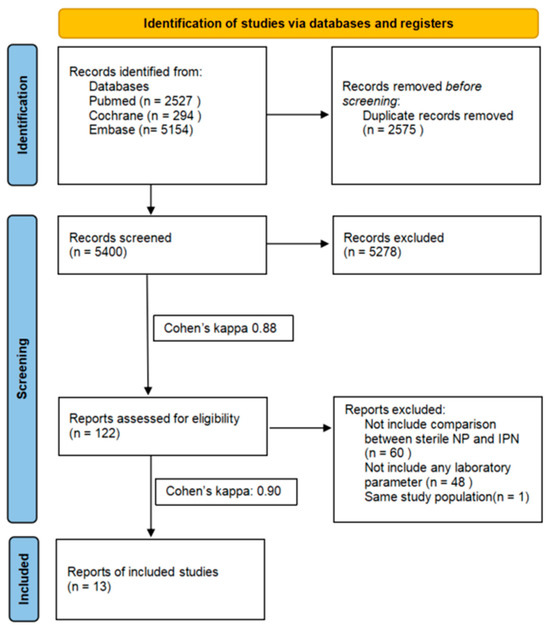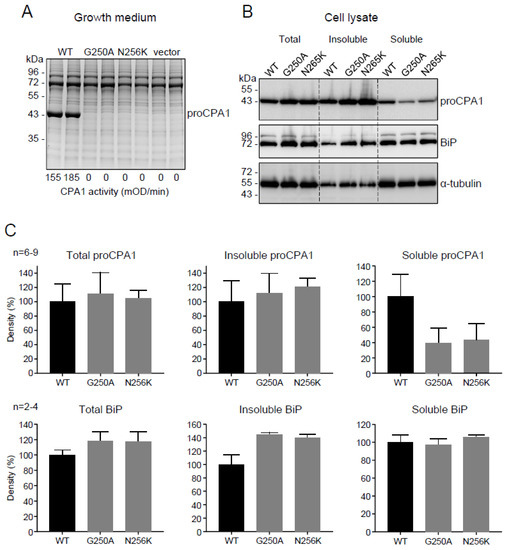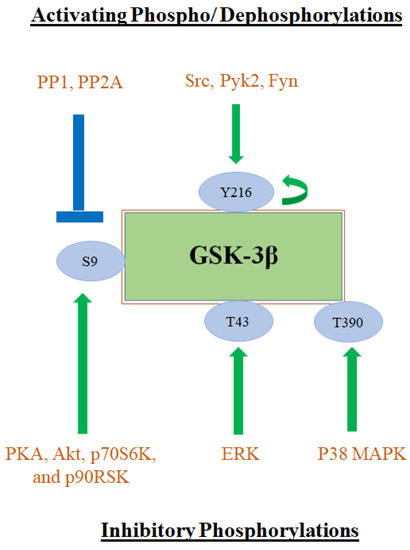Molecular Understanding of the Exocrine Pancreas and Its Disorders
Share This Topical Collection
Editor
 Prof. Dr. Zoltán Rakonczay
Prof. Dr. Zoltán Rakonczay
 Prof. Dr. Zoltán Rakonczay
Prof. Dr. Zoltán Rakonczay
E-Mail
Website
Collection Editor
Department of Pathophysiology, University of Szeged, Szeged, Hungary
Interests: pancreatitis; cystic fibrosis; pancreatic ductal secretion
Topical Collection Information
Dear Colleagues,
One of our most enigmatic gastrointestinal organs is the pancreas. It is unique due to its retroperitoneal location and its ability to exercise both endocrine and exocrine functions. The latter functions include the secretion of digestive enzymes and an alkaline fluid containing bicarbonate. Unfortunately, it is rather difficult to investigate the pancreas due to its high digestive enzyme content. The pancreas is also affected by several diseases that even nowadays have an unacceptably high mortality rate.
This Topic Collection focuses on the molecular mechanisms of exocrine pancreatic physiology and disorders affecting the exocrine pancreas, such as inflammation (acute and chronic pancreatitis) and cancer. Since our knowledge about the pathophysiology of pancreatitis and pancreatic cancers is incomplete, adding missing information will help the scientific community to discover successful treatments for these dreadful diseases.
This TC, entitled “Molecular Understanding of the Exocrine Pancreas and its Disorders” welcomes original and review articles, as well as communications related to the above-mentioned subject areas.
Prof. Dr. Zoltán Rakonczay
Collection Editor
Manuscript Submission Information
Manuscripts should be submitted online at www.mdpi.com by registering and logging in to this website. Once you are registered, click here to go to the submission form. Manuscripts can be submitted until the deadline. All submissions that pass pre-check are peer-reviewed. Accepted papers will be published continuously in the journal (as soon as accepted) and will be listed together on the collection website. Research articles, review articles as well as short communications are invited. For planned papers, a title and short abstract (about 100 words) can be sent to the Editorial Office for announcement on this website.
Submitted manuscripts should not have been published previously, nor be under consideration for publication elsewhere (except conference proceedings papers). All manuscripts are thoroughly refereed through a single-blind peer-review process. A guide for authors and other relevant information for submission of manuscripts is available on the Instructions for Authors page. International Journal of Molecular Sciences is an international peer-reviewed open access semimonthly journal published by MDPI.
Please visit the Instructions for Authors page before submitting a manuscript.
There is an Article Processing Charge (APC) for publication in this
open access journal. For details about the APC please see here.
Submitted papers should be well formatted and use good English. Authors may use MDPI's
English editing service prior to publication or during author revisions.
Keywords
- pancreatitis
- pancreatic cancer
- exocrine pancreas
- pancreatic diseases
- pancreas disorders
Published Papers (3 papers)
Open AccessReview
Persistently High Procalcitonin and C-Reactive Protein Are Good Predictors of Infection in Acute Necrotizing Pancreatitis: A Systematic Review and Meta-Analysis
by
Dorottya Tarján, Eszter Szalai, Mónika Lipp, Máté Verbói, Tamás Kói, Bálint Erőss, Brigitta Teutsch, Nándor Faluhelyi, Péter Hegyi and Alexandra Mikó
Viewed by 1138
Abstract
Infected necrotizing pancreatitis (INP) is associated with an increased risk of organ failure and mortality. Its early recognition and timely initiation of antibiotic therapy can save patients’ lives. We systematically searched three databases on 27 October 2022. In the eligible studies, the presence
[...] Read more.
Infected necrotizing pancreatitis (INP) is associated with an increased risk of organ failure and mortality. Its early recognition and timely initiation of antibiotic therapy can save patients’ lives. We systematically searched three databases on 27 October 2022. In the eligible studies, the presence of infection in necrotizing pancreatitis was confirmed via a reference test, which involved either the identification of gas within the necrotic collection through computed tomography imaging or the examination of collected samples, which yielded positive results in Gram staining or culture. Laboratory biomarkers compared between sterile necrotizing pancreatitis and INP were used as the index test, and our outcome measures included sensitivity, specificity, the receiver operating characteristic (ROC) curve and area under the ROC curve (AUC). Within the first 72 hours (h) after admission, the AUC of C-reactive protein (CRP) was 0.69 (confidence interval (CI): 0.62–0.76), for procalcitonin (PCT), it was 0.69 (CI: 0.60–0.78), and for white blood cell count, it was 0.61 (CI: 0.47–0.75). After the first 72 h, the pooled AUC of CRP showed an elevated level of 0.88 (CI: 0.75–1.00), and for PCT, it was 0.86 (CI: 0.60–1.11). The predictive value of CRP and PCT for infection is poor within 72 h after hospital admission but seems good after the first 72 h. Based on these results, infection is likely in case of persistently high CRP and PCT, and antibiotic initiation may be recommended.
Full article
►▼
Show Figures
Open AccessArticle
Novel p.G250A Mutation Associated with Chronic Pancreatitis Highlights Misfolding-Prone Region in Carboxypeptidase A1 (CPA1)
by
Máté Sándor, Franziska G. Thiel, Margit Schmid, Alexandra Demcsák, Nataly C. Morales Granda, Balázs Csaba Németh, Sandor Vajda, André Hoerning and Miklós Sahin-Tóth
Cited by 3 | Viewed by 1379
Abstract
Inborn mutations in the digestive protease carboxypeptidase A1 (CPA1) gene may be associated with hereditary and idiopathic chronic pancreatitis (CP). Pathogenic mutations, such as p.N256K, cause intracellular retention and reduced secretion of CPA1, accompanied by endoplasmic reticulum (ER) stress, suggesting that mutation-induced misfolding
[...] Read more.
Inborn mutations in the digestive protease carboxypeptidase A1 (CPA1) gene may be associated with hereditary and idiopathic chronic pancreatitis (CP). Pathogenic mutations, such as p.N256K, cause intracellular retention and reduced secretion of CPA1, accompanied by endoplasmic reticulum (ER) stress, suggesting that mutation-induced misfolding underlies the phenotype. Here, we report the novel p.G250A
CPA1 mutation found in a young patient with CP. Functional properties of the p.G250A mutation were identical to those of the p.N256K mutation, confirming its pathogenic nature. We noted that both mutations are in a catalytically important loop of CPA1 that is stabilized by the Cys248-Cys271 disulfide bond. Mutation of either or both Cys residues to Ala resulted in misfolding, as judged by the loss of CPA1 secretion and intracellular retention. We re-analyzed seven previously reported CPA1 mutations that affect this loop and found that all exhibited reduced secretion and caused ER stress of varying degrees. The magnitude of ER stress was proportional to the secretion defect. Replacing the naturally occurring mutations with Ala (e.g., p.V251A for p.V251M) restored secretion, with the notable exception of p.N256A. We conclude that the disulfide-stabilized loop of CPA1 is prone to mutation-induced misfolding, in most cases due to the disruptive nature of the newly introduced side chain. We propose that disease-causing
CPA1 mutations exhibit abolished or markedly reduced secretion with pronounced ER stress, whereas
CPA1 mutations with milder misfolding phenotypes may be associated with lower disease risk or may not be pathogenic at all.
Full article
►▼
Show Figures
Open AccessReview
Glycogen Synthase Kinase 3β: A True Foe in Pancreatic Cancer
by
Omer H. M. Elmadbouh, Stephen J. Pandol and Mouad Edderkaoui
Cited by 4 | Viewed by 2125
Abstract
Glycogen synthase kinase 3 beta (GSK-3β) is a serine/threonine protein kinase involved in multiple normal and pathological cell functions, including cell signalling and metabolism. GSK-3β is highly expressed in the onset and progression of multiple cancers with strong involvement in the regulation of
[...] Read more.
Glycogen synthase kinase 3 beta (GSK-3β) is a serine/threonine protein kinase involved in multiple normal and pathological cell functions, including cell signalling and metabolism. GSK-3β is highly expressed in the onset and progression of multiple cancers with strong involvement in the regulation of proliferation, apoptosis, and chemoresistance. Multiple studies showed pro- and anti-cancer roles of GSK-3β creating confusion about the benefit of targeting GSK-3β for treating cancer. In this mini-review, we focus on the role of GSK-3β in pancreatic cancer. We demonstrate that the proposed anti-cancer roles of GSK-3β are not relevant to pancreatic cancer, and we argue why GSK-3β is, indeed, a very promising therapeutic target in pancreatic cancer.
Full article
►▼
Show Figures









